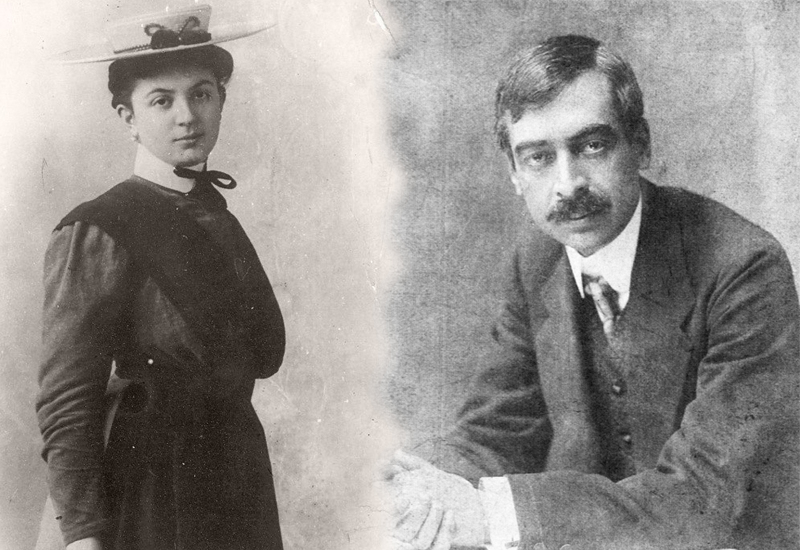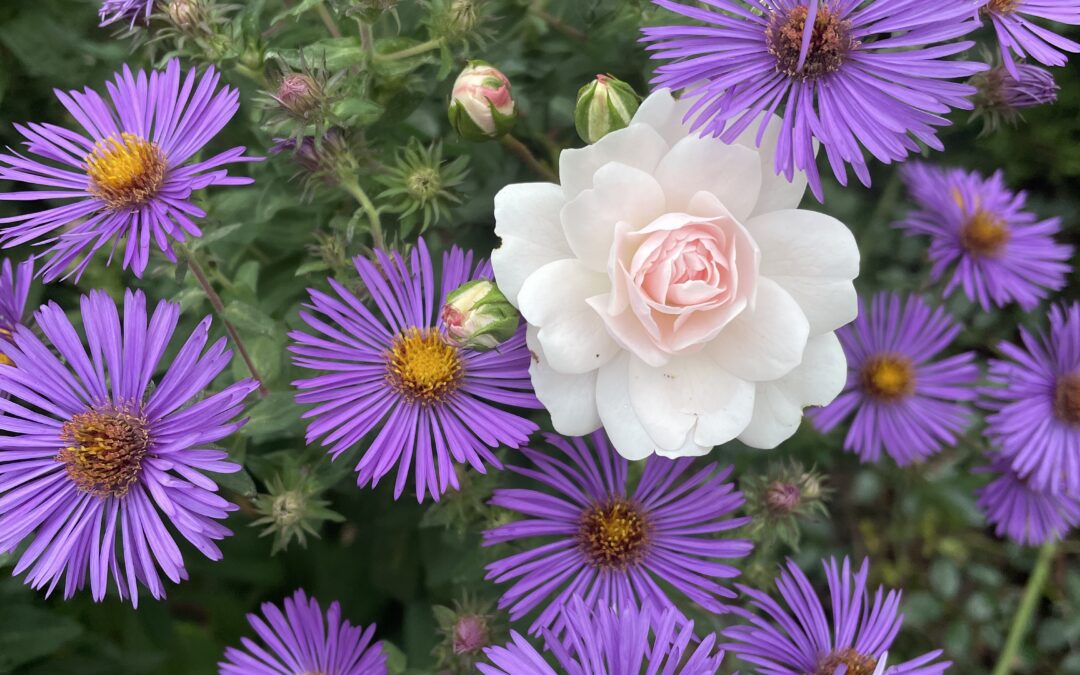Two lovely eyes
By Peyo Javorov
Translated by Lubomira Kourteva
in two lovely eyes; — music — sun rays
They don’t expect anything and they don’t promise…
My soul is pleading,
child,
my soul pleading!
Passions and woes
may cast upon them tomorrow
the veil of shame and sin.
The veil of shame and sin —
won’t cast upon them tomorrow
the passions and the woes.
My soul is pleading,
child,
my soul is pleading…
They don’t expect anything and they don’t promise! —
Two lovely eyes. Music, sun rays
in two lovely eyes. The spirit of a child…
Две хубави очи
Пейо Яворов
в две хубави очи; — музика — лъчи
Не искат и не обещават те…
Душата ми се моли,
дете,
душата ми се моли!
Страсти и неволи
ще хвърлят утре върху тях
булото на срам и грях.
Булото на срам и грях —
не ще го хвърлят върху тях
страсти и неволи.
Душата ми се моли,
дете,
душата ми се моли…
Не искат и не обещават те! —
Две хубави очи. Музика, лъчи
в две хубави очи. Душата на дете…
About {poetry translations}:
Many, many, years ago my grandparents gifted me a beautiful book, the historical novel “The Iron Candlestick” by Dimitar Talev (“Железният Светилник” от Димитър Талев), which is one of the most treasured gems in Bulgarian literature. On the inside of the book they had written me a dedication: “To Lubomira, with so much love and deep respect, with the hope that no matter where she finds herself in this beautiful world, her love for her home land and her heritage will never burn out.”
And here I am. Still burning. Still, never forgetting. My heart is too big.
{poetry translations} is my new series in which I will delve into the hard task of translating poetry. As this year is coming to a close, many people say “let go of the old to take it the new”. And sure, we need to de-clutter, always. But it is just as important to stay close to our roots, remembering those who came before us; those who paved our way, as the land today is the one we borrow from the future generations also. I believe that old and new can dance together, weave together, and hold each other’s hands. I believe knowing our roots, knowing history, is a devotion to never forget, so that truly new things can unfold. This is why I dedicate part of Art of Love to retelling old stories and lore in my series The Story Threads.
Having lived across three continents, I’ve not only been blessed to experience new cultures and traditions, but I’ve also seen how new worlds open when we speak another language. Just by learning a new word, a new world opens, a new experience is felt through our body. And we also open up new worlds for others to experience, when we can gift the gift of translating works made of love.
While all literary works are hard to translate, poetry certainly takes the crown as the hardest one. It not only requires the translator to understand the depth and essence of the poem, but then they have to allow the “other” language to carry its meaning forward. Words while they could be literally translated, don’t necessarily carry the same meanings. And in many ways, I feel that translations are a work of artists, a way of dancing with, and in-between, worlds, re-shaping words while allowing the thread of love to carry forth the essence and meaning of the poem’s heart. Hopefully, I’ll do these older poets and poetesses the justice they deserve, and hopefully, for you, my dear reader, I can open up another world, of touching the heart of foreign words.
About the poem and the author:
Peyo Javorov (Пейо Яворов) (1878-1914) was one of the most beloved and brilliant Bulgarian poets. He was recognized internationally, and the Yavorov Peak on Livingston Island in Antarctica is actually named after him. Even today, he is still considered to be one of the finest poetic talents in all of Bulgarian history.
Javorov’s poetry is romantic, beautiful, emotional, and one that people can’t help but fall in love with. Equal parts tender and brooding, with deep sensitivity and sentimentality, his poetry grabs you by the throat, and heart, and demands your full attention, with a sacred intimacy.
Javorov was part of the Symbolist movement, weaving natural imagery and metaphors to express the universal and the spiritual, tackling themes of love, trust, purity, temptation, faith and predestination. In its essence, symbolism, as described in the Symbolist Manifesto (“Le Symbolism”) by Green poet and essayist Jean Moreas, sets out to “clothe the Ideal in a perceptible form” and to reject “plain meanings, declamations, false sentimentality and matter-of-fact descriptions.”
This is particularly true of Javorov’s sublime love poetry, as it marries the physical with the spiritual, and the sacred; as the lover’s beauty, and the intimacy of the bond that the two of them share, transcends the love to a realm and a world, from a time before time beyond time. There is fatedness. There is soul connection. There is ethereal depth, meaning and beauty.

Mina Todorova and Peyo Javorov
His inspiration + poem’s analysis
Javorov’s love lyrics are an expression of the human soul, its deep emotional worlds, blending into itself the complexity of the many nuances of feelings and intensities.
The beautiful poem “Two lovely eyes” was dedicated to the woman Javorov was deeply and helplessly in love with, for perhaps all of his life, long after her unfortunate young death – Mina Todorova. There is an ethereal quality to this poem as it reflects the almost angelic purity that he saw her as – her ethereal inner beauty, pristine aura of grace and kindness, and the absolute embodiment of love itself. The beauty of which he speaks however, isn’t just external – it is internal – which makes the physical attributes almost invisible in comparison. It’s sublime love, divine love, sacred love.
As we saw in Javorov’s You will be in white, Mina was his one love that inspired a world within him like no other: a world where love was so sacred, so sublime, that it transcended the physical limitations and boundaries of life. The love he felt for her was like a temple. Temple of his soul. She was his temple. She held his soul and his heart in peace, love, hope and warmth.
In such temples, we find the calmness that we long for. It feels like home.
The poem offers references to the childlike quality of innocence and purity of heart. It is through the purity of one’s heart, that we can enter the higher realms and see what beauty and love truly are.
Analysis:
“Music” and “sun rays” open the doorways to the heavens which are inspired within him through even the slightiest thought of her. There is brightness, lightness, warmth and a lover’s symphony that holds him when he thinks of her. We all know this – when we love someone, even the thought of them makes us feel good and uplifted.
The “spirit of a child” is emphasized as this is what the essence of true love is – something pure and innocent, springing from the purity of one’s heart, unable to be tainted, and always inspiring awe and wonderment. As children, we accept all as is and adore it – we don’t expect anything in turn, we don’t want to change or fix people and things, we just accept you. This is the essence of true love: acceptance. With the curiosity of our heart’s eyes, we explore all and everything, discover and re-discover one another even after many years together living under the same roof, and we can take pleasure in the tiny things with new awareness. This is what love makes us: a warm heart.
And of course, there are also “no promises”, as all weaves in and of itself, things change and move like water, but even if relationships end, it was still meaningful and something to be grateful for. To experience deep true love is a gift, always, even if we were only touched by it for a moment.
In the poem we see how he is hoping and pleading that she remains her loving self despite the harshness of the world – that despite the hardships, she can keep the tenderness within her. It’s almost like he wants to protect her from all ugliness and negativity – as he himself has been through much sadness. At the very least, he wants to be beside her supporting her – doing all he can with his every breath to hold her in her tears, lift her up and raise her.
In the beginning of the poem, we see that he is wondering whether the world’s woes and carnal motivations of people will cast over her and lead her astray – and yet we then see that he is turning hopeful that they will not. This portrays a change in mood and emotion, and offers a beautiful contrast in the almost repetition of the lines.
The “veil” symbolizes all the hidden desires and masked truths of people, or as we say, “spiritual blindness” which stems from lack of awareness and intentions stemming only from the lower realms. His prayers are almost an incantation to preserve her soul in purity and higher truth, so that no harm can cast upon her. There is also a sense of acceptance that even if they do cast upon her – no matter what happens – he will still love her and always vow to be beside her.
A Sacred Love: Mina Todorova and Peyo Javorov
Mina Todorova was one of Javorov’s greatest inspirations, and thought to have been his one big love, though the poet later on married and dedicated many poems to his wife Lora Karavelova also. He actually met both Lora and Mina around the same time in 1906. Undoubtedly though, he dedicated himself to romance only Mina. He was so God-smacked in love with her at first sight, smitten with her innocence, beauty and tenderness, that as soon as he came home after first seeing her, he wrote the poem “Annunciation” (“Благовещение”):
“A cool breeze from angel’s wing, Oh angel, Oh child, zephyr from angel’s wing across the heat of my forehead, as if I fall into a gentle dream … and the dawn is dawning outside the window.”
Romantic as he was, Javorov was charming her with many handwritten letters, in which he always referred to her as “angel”. Skeptical at first, Mina wrote in one of her replies, “I can’t make sense of what will come out of this. I am so young, and you are a poet.” He didn’t give up though, and step by step, Mina began to fall in love with him also.
They continued their long distance correspondence for the next three years, and their love grew stronger and stronger. But Mina’s parents disapproved of the relationship and so their love remained secret, and most probably, remained in the realms of the emotional, spiritual and non-physical. Though this didn’t make it any less passionate, and the fires were burning powerfully for both of their bodies.
In June 1909, they saw each other for the last time, and then, they promised to meet again despite family’s disapproval and all other challenges in two years time, when they will be together forever. Tragically, Mina fell ill with tuberculosis shortly after; her family sent her to Paris for treatment. Desperate to meet her, the poet travelled to France to see her, but her family once again forbade him. Mina passed away in July 1910. Javorov was completely devastated. For six months after, every day, he’d visit her grave and stay there. It is said that he never got over her loss, and that she remained his one true love.

Peyo Javorov's handwriting, from his diaries
Poems like “Enchantress” (“Вълшебница”), “Two Lovely Eyes” (“Две хубави очи”) and “You will be in white” (“Ще бъдеш в бяло”) portray the sacred, divine love that he felt for Mina, and how he always wanted to share his entire life with her, as her husband.
In one of his diaries, Javorov wrote:
“And in those two beautiful eyes, I had sung a song. And I had put a ring on her tender little hand. And our lips merged into one kiss, one kiss which was our vow, our oath.
(…) This was the day of the Annunciation. And I called her my God’s gift for this life.”
Javorov often shared in his diaries that the feelings he felt were just too big and strong for poetry, and that he should perhaps experiment with other genres. I can only imagine if he had written a novel, as beautiful as his diaries, how it would have stolen my heart. I think for all of us writers, we should always stay curious and try to experiment with other genres, to allow more freedom of expression, for the soul to shape its way as it needs, through our hands.
To Javorov, Mina was his soulmate.
Of course, there were other loves. Perhaps many others, as some people say. As a fellow romantic writer and poet, I sure know how much we love to love, and can be in love with love, eternally, seeing it everywhere. But Mina is Mina, only Mina.
When the heart speaks, nothing else matters. And sometimes we just know, even if it’s from a distance, even if we can’t see nor touch each other yet, even if there are perpetual questions that the mind wants to ask because nothing makes any sense, even if we haven’t met yet, when we finally meet our “one”, we will know: This is the one I was made for.
With love + gratitude,

Love poetry?
This was part of my {poem + story} series where I share new poems, inspirations and art. You can also read poems from my two full-length poetry books in my poetry section, and learn more about my books, Moonhold (2019) and The God-like Things (2021). Both are available for purchase, signed copies upon request.
You can also read my essay on “The Power of Poetry” published in The Poetry Question Journal, on the connection between poetry and mysticism.
And if you’ve missed it, you can read my other two {poetry translations} You will be in white by Peyo Javorov, Enchantress by Peyo Javorov, and Pagan Love by Dora Gabe.
The cover photography is my own.
If you are a Bulgarian poet/writer wanting your work translated by me, you’re absolutely welcome to contact me.
I love what I do, and if you want to support me, you can do so by sharing my articles and poems, buy my books or donate some magic coins in my hat on Paypal. If you would like to work with me, visit my Sacred Offerings.
Your support means so much to me! Thank you wholeheartedly!

